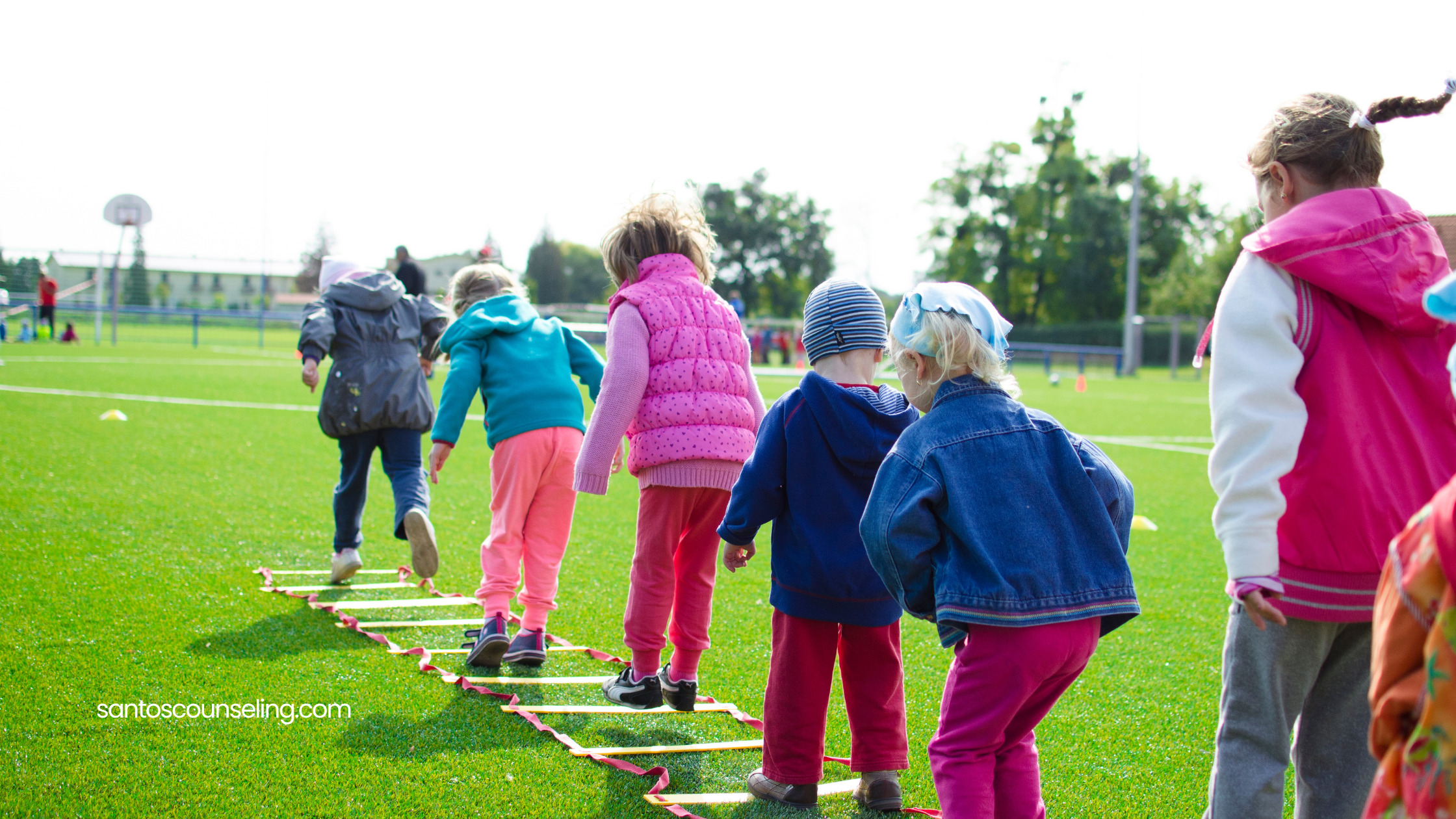Child Therapist In Greensboro, NC
From one parent to another, I completely understand what it is like to watch your child win a race. To see them make friends. And to experience the deep hurt that comes when you have to watch your child struggle.
Parenting is a journey, not a race.
It is a process of learning about yourself as a parent while trying to raise a child to become a healthy and happy adult.
Counseling is a wonderful space for both parents and kids. Parents can gain direction and support in navigating parenthood. Children to teens can receive support in healing, growing, and developing the necessary skills to manage difficult situations.
10 Reasons To Begin Therapy For Children
1. Adjustment issues.
Children can often experience adjustment issues to life transitions. Such as the divorce of parents, moving to a new home, changing schools, and losing friends. Therapy can be a wonderful way to support your child with adjustment issues.
2. Anxiety treatment for kids.
Counseling helps kids that struggle with nervousness, feeling overwhelmed, trouble focusing and concentrating rapid heartbeat, and a fear of something bad happening. Therapy can support your child with developing healthy coping skills to manage their anxiety and live a healthy happy life.
3. Counseling for Trauma.
Counseling can help kids heal and recover after traumatic experiences. Common traumas include abusive experiences, the death of a loved one, or incidents such as school shootings. Therapy provides kids with self-care practices, healing exercises, and psycho education focused on healing from the traumatic experience.
4. Academic difficulties.
Your child can benefit from working with a counselor in the area of academic performance. Counseling can support children with performance anxiety, improve study skills, or address areas connected to time management and organization.
5. Support with ADHD (attention deficit hyperactivity disorder).
Kids often struggle with ADHD in settings that include school, sports, and situations like following directions or taking on new tasks. Therapy can help kids that experience ADHD symptoms by providing clinically effective strategies that support restlessness, focusing, paying attention, organization, and completing tasks.
6. Disruption in the family system.
Counseling can support children that are experiencing challenges in the family system. Common disruptions in family dynamics that kids experience includes experiencing divorce, the passing of a loved one, mental illness or disability in the family system, or incarceration.
7. Self-esteem and self-confidence.
Children actively work on their self-confidence and self—esteem throughout their development. As a parent, you may notice this when watching them play sports or attempting to make friends on the playground or in the classroom. Therapy can provide your child with clinically effective strategies aimed to show your child how to heal, grow, develop a growth mindset, and actively improve their self-confidence and self-esteem.
8. Therapy helps kids with anger.
Counseling can help your child effectively process their anger in a manner that teaches them how to understand what they are feeling, process the anger in a healthy manner, and release the anger without hurting themselves or others.
9. Poor communication and social skills.
Therapy can help kids improve their communication skills, feel confident when socializing with peers, and overcome difficulties connected to social anxiety.
10. Therapy helps children with depression.
Your child may struggle with depression if they experience sadness, isolation from peers, poor concentration, bad thoughts, trouble sleeping, or difficulty maintaining a healthy appetite. Therapy can support your child with depression by providing education on what depression is, teaching your child healthy coping skills to manage depression, and self-care practices.
What Does My Child Do During Therapy
During the first counseling session, your child is able to receive support from the therapist in developing a treatment plan. The treatment plan covers the following key areas:
- The goals that your child has for therapy.
- The goals that the parents have for therapy.
- The current challenges that the child is experiencing.
- Your child’s strengths and areas of improvement.
- Your child’s past medical history includes mental health and medication history.
During a typical therapy session, your child will explore varying therapeutic exercises with the counselor. An example includes role-playing to support your child in learning how to navigate their thoughts and utilize coping skills.
The counselor can start the session by asking your child to present a typical situation they have been in. Together, the client and counselor work on processing the situation using clinically effective coping skills.
This strategy empowers your child to learn how to feel confident during situations, improve their self-esteem, and process thoughts and feelings in a healthy constructive manner.
For more supportive reads on parenting and kids resources use the links below:



